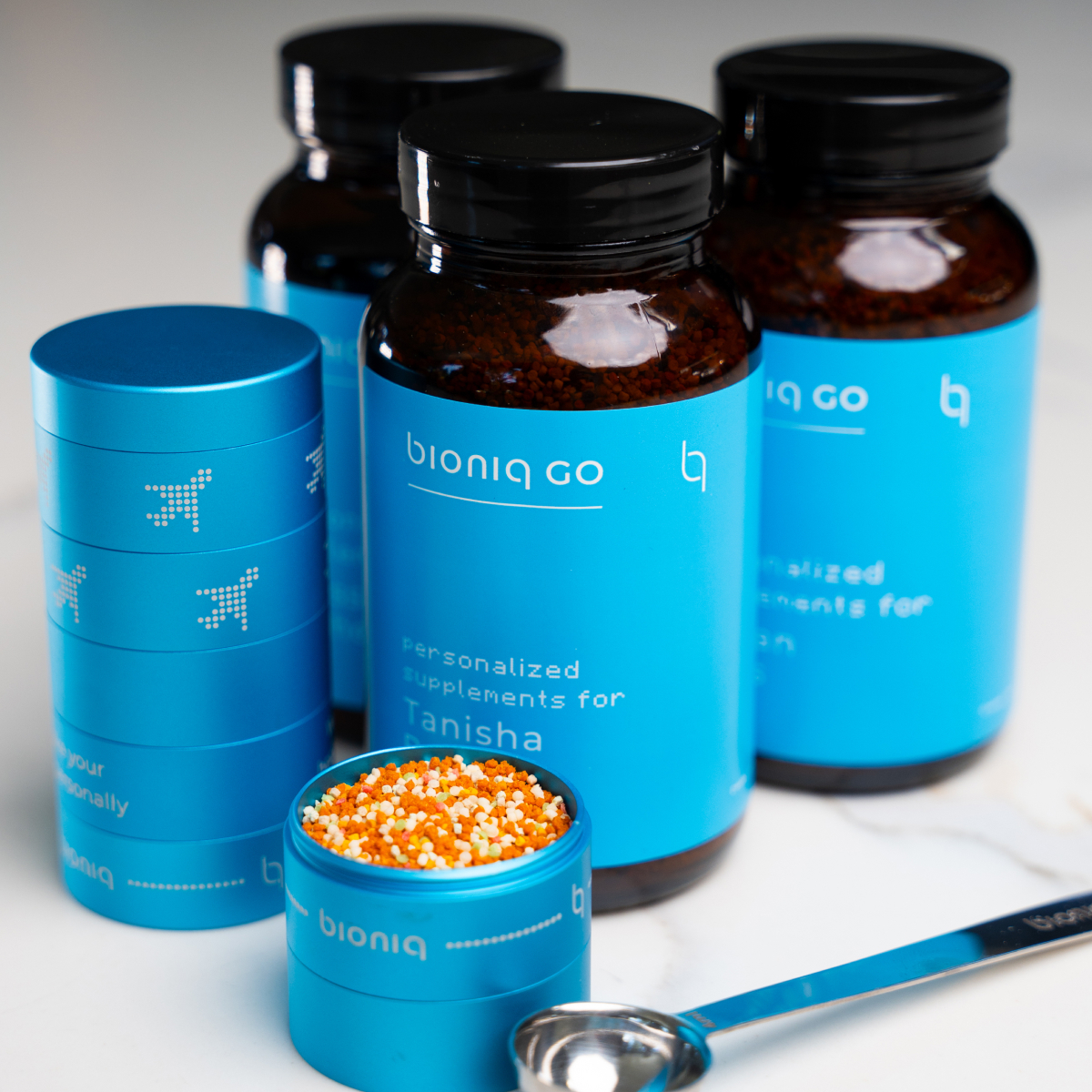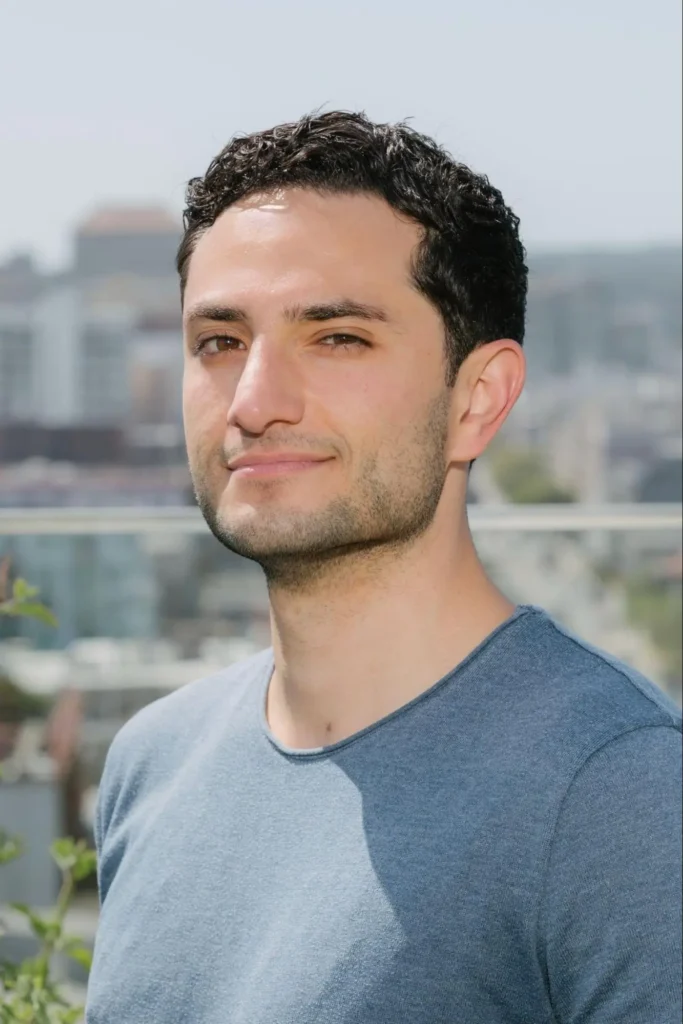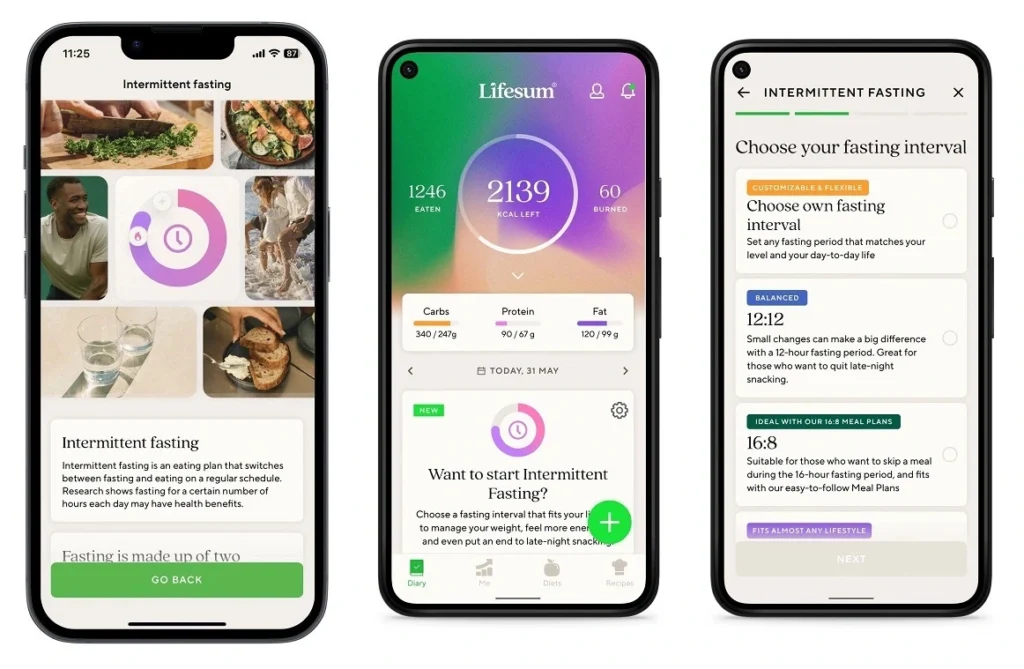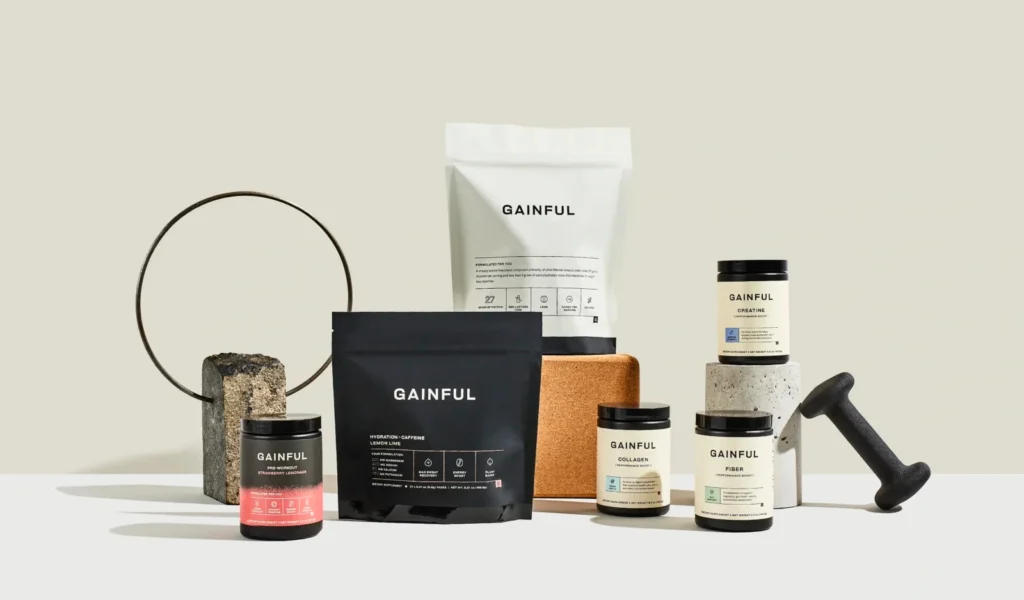Can Personalized Nutrition Solve America’s Health Crisis?

Key executives in fitness’ nutrition sector explain telenutrition, nutrition apps and software, as well as forward-thinking supplement companies
As the longevity movement takes hold, it’s not just infrared saunas, cold plunge and cryotherapy that are making waves.
Wellness-focused Americans are placing a greater emphasis on the things they put into their bodies, whether that be food or supplements. As those in the United States continue to grow weary of the shortcomings of our modern healthcare system, more and more people are coming around to the idea that “food is medicine.”
Amid this backdrop, personalized nutrition has emerged as a new category, one that may help people live better, for longer.
Athletech News breaks down some of the key players in the personalized nutrition space, including telenutrition, healthy eating apps and new-age supplement companies.
The Rise of Telenutrition
Eating “healthy” may seem simple on the surface, but the complications and stressors of daily life, a lack of education and individual genetic differences make maintaining proper nutrition much more challenging in practice.
According to the USDA, more than 100 million Americans are suffering from preventable chronic diseases linked to poor nutrition and physical inactivity. Many Americans don’t know where to start, or how to sort out the complex and oftentimes conflicting dietary advice they’re fed on social media and in news articles.
Telenutrition – the practice of connecting people with registered dietitians (RDs) through virtual platforms like Zoom – has emerged as one way to help America out of its nutrition-induced health crisis. Investors are highly bullish on space, as are many health experts.
Earlier this year, Nourish raised $35 million in a Series A funding round, bringing the company’s total funding to $44 million since its inception in 2021.
The New York–based telenutrition startup offers Americans access to RDs through their healthcare plan, drastically lowering the costs of obtaining expert nutrition advice.
“Our goal is to create a win-win-win for patients, providers, and payers,” said Sam Perkins, co-founder, president and COO of Nourish. “For patients, we unlock access to personalized nutrition care that has historically been limited to a subset that can afford to spend thousands of dollars out-of-pocket. For RDs, we remove the barriers to accepting insurance, enabling them to focus on patients and building their practices rather than administrative tasks and paperwork. For payers, we’re providing access to a high-quality dietitian network and virtual nutrition platform to measure and improve clinical outcomes.”
Nourish is also developing technology to incorporate “food as medicine” into its program, essentially allowing registered dietitians to “prescribe” diets for patients.
Fay, another startup that connects Americans with RDs covered by their health insurance, raised $20 million in a Series A round announced earlier this year, bringing its total funds raised to $25 million.
Founded by Sammy Faycurry and Mark Stefanski in 2022, Fay currently has over 1,000 health insurance providers on its platform and is projected to exceed 2,000 by 2025. Registered dietitians on the Fay platform cover more than 30 specialties including eating disorders, diabetes, kidney disease, weight management, gut health and general preventative care.
“For too long, access to diet and nutrition care has been gate-kept by prohibitively high costs and inability to access RDs who accept insurance,” said Faycurry, who serves as Fay’s CEO. “Fay was born from the belief that everyone deserves access to expert care – allowing the majority of Americans to have easy and convenient access to life-changing nutrition counseling.”
Faycurry, a Harvard Business School grad whose mother and sister are both registered dietitians, believes telenutrition platforms like Fay could hold the key to helping America out of its chronic-disease predicament.
“This is a critical moment for nutrition in America, as is evidenced by half of adults with one or more preventable conditions linked to eating patterns, changing consumer sentiment around better-for-you products, and increasing use of medications and invasive procedures,” Faycurry told Athletech News. “Demand for help with diet and better nutrition has been surging for a while, with no realistic product in the market that was clinically proven and affordable. We’re excited to be that solution in a market that has needed it for far too long.”
With the funding, Fay plans to build out its platform with new features, including ones that would make it easier for Americans to obtain healthy food.
“An example of this is food service delivery integration with our platform,” Faycurry says.
“This is a critical moment for nutrition in America, as is evidenced by half of adults with one or more preventable conditions linked to eating patterns, changing consumer sentiment around better-for-you products, and increasing use of medications and invasive procedures,” he added. “Demand for help with diet and better nutrition has been surging for a while, with no realistic product in the market that was clinically proven and affordable. We’re excited to be that solution in a market that has needed it for far too long.”

Making Healthy Eating Fun & Accessible
Expert advice on nutrition is important, but so too is motivation and adherence.
Lifesum, a popular healthy eating platform with over 60 million users worldwide, seeks to make it easy – even fun — for people to make smart food choices.
Founded in 2013 by tech entrepreneurs with experience in online entertainment, including a former Spotify executive, the app features a slick user interface and offers tools like calorie and macronutrient tracking, meal plan templates and diet plans, and sleep and activity tracking through integrations with Apple Health, Google Fit and Oura.
“Our north star is to make it easier for people to understand what healthy eating means to them, empowering them to make better choices that allow them to live life to the fullest,” explained Marcus Gners, Lifesum’s co-founder and CIO.

As the longevity movement takes hold, Gners reports that many Lifesum users now view nutrition as a means to improve their overall health and performance rather than just as a way to shed pounds.
“People still want to manage their weight, but we see an increased interest in our functionality that gives more nuance to the impact nutrition has beyond the standard fueling process,” Gners said. “For example, we see increased interest in the role nutrition can play in improving mental health, athletic performance and sleep.”
In a longevity-focused move, Lifesum acquired Lykon, an at-home biomarker testing company, earlier this year. With the deal, Lifesum users will soon be able to track and monitor their health with at-home biomarker tests, combining those insights with nutrition for a powerful one-two punch.
Lifesum CEO Markus Falk called the move a “game-changer” for the healthy eating platform.
“Combining biomarkers with innovative technology enables personalized supplements and coaching to truly empower people to take care of their health,” added Lykon founder and CEO Tobias Teuber. “Joining forces with Lifesum allows us to provide consumers with unparalleled insights (into) their health.”
“People still want to manage their weight, but we see an increased interest in our functionality that gives more nuance to the impact nutrition has beyond the standard fueling process,” Gners added. “For example, we see increased interest in the role nutrition can play in improving mental health, athletic performance and sleep.”

Supplement Brands Change the Narrative
Supplements often get a bad rap as overhyped or downright ineffective, but a few innovative brands are looking to alter that perception through the power of personalization.
Founded in 2017 by Eric Ji Sun Wu and Jahaan Ansari, Gainful is one of the pioneers and market leaders in the personalized supplement and nutrition space.
After an online quiz where customers are asked information about their background and health goals, Gainful recommends a monthly shipment of products tailored to a user’s unique profile, including protein powder, pre-workout, creatine, fiber, collagen, hydration and greens powder. Gainful customers also get one-on-one access to registered dietitians for further personalized support.
Dean Kelly, a former Walmart ecommerce exec who took over as Gainful’s CEO in 2023, believes providing a deeply personalized experience is what sets Gainful apart from the many other brands selling protein powders, creatine and pre-workout blends.
“I view personalization as the feeling that a customer gets at the end of their experience with Gainful that makes them feel as if ‘Gainful is for me,’” Kelly told Athletech News. “And it’s not only because of the products we’re recommending; the way that we talk to you is unique to you. We also bring in expert guidance from real RDs to help our customers with nutrition. It’s completely personalized, so it’s a real person responding to real people with real questions.”
Gainful raised $7.5 million in a Series A round in 2021, which allowed the brand to expand beyond protein and into other supplements. In 2023, it struck a deal with Target to bring its personalized supplement blends into the retail giant’s brick-and-mortar stores.
Looking ahead, Kelly has said Gainful is looking to raise another $20-30 million so it can make a bigger push into retail and expand its product line into new supplement categories.
“If you can imagine where we’ll go next, Gainful is all about customization,” Kelly said. “You have a base protein, and then you can start to add Boosts, which might be gut health, menopause, prenatal, postnatal, cognitive, sleep, heart health or joint health. These are all categories we can go into under the umbrella of customization.”

Bioniq, meanwhile, is looking to change the way we take multivitamins.
The London-based company takes personalization to a new level – users take a blood test and are offered a supplement blend based on those results. (Bioniq also offers users the option of completing a questionnaire instead of a blood test).
Each uniquely developed Bioniq formula can have up to 120 nutrients. The company leverages a patented algorithm based on blood test data from tens of thousands of people across millions of biochemical data points to support its supplement recommendations. Notably, Bioniq supplements come in a granule form, which the company says enhances absorption compared to traditional pills.
A testament to its approach, Bioniq just raised $15 million in a Series B round led by HV Capital and Unbound. The funding round values the supplement brand at $70 million.
“We’ve entered a new era in nutritional supplementation over the last six years, where it’s become clear that one-size-fits-all solutions are simply inefficient,” said Vadim Fedotov, co-founder and CEO of Bioniq. “Everyone’s health journey is unique and fluid. Customers need advanced, adaptable products that provide evolving support for personal health goals. Our AI-driven approach and extensive biochemical database allow us to create customized supplements that provide quantifiable results and cater to individuals’ specific needs.”
This article originally ran in the The Business of Prevention, Recovery & Longevity Report 2024. Download the report now to read more insights into how fitness and wellness brands are making strides in key markets.



